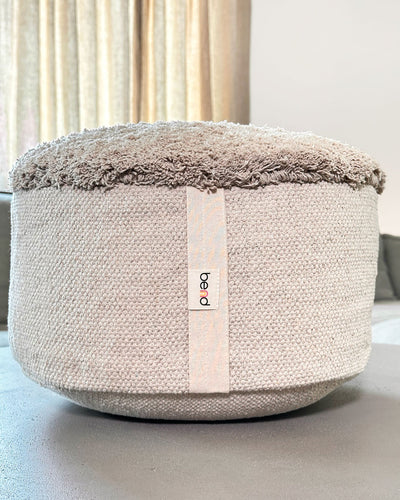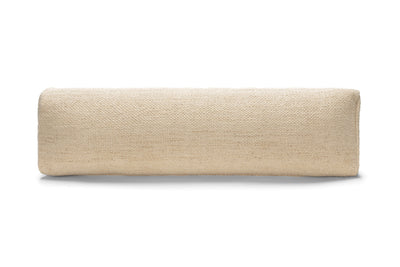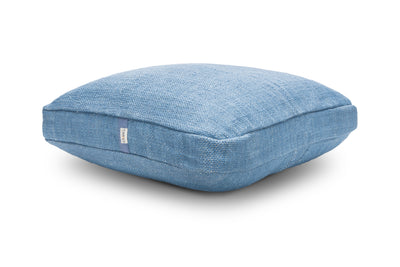Intro into the Doshas: Discovering Your Vata Constitution
In Ayurveda we look to the three Doshas to decipher what is aligned or out of balance within our bodies. Doshas are constitutions that influence your mental and physical wellbeing. The three Doshas we all embody are: Vata, Pitta and Kapha. They each have distinct qualities that allow us to identify what is balanced and imbalanced in our mind, body and spirit. Doshas are potent and powerful forces that are constantly in motion. Depending on your individual body, where you live, the season and the time of day; certain Doshas may be aggravated. As we begin to identify how each Dosha shows up within us, we will be able to pacify them using certain Ayurvedic protocols.
Understanding Vata
The elements that make up Vata are air and ether. The qualities of Vata consist of coolness, lightness, movement, change, roughness, quickness, dryness and mobility. Vata is known as “that which moves things” it is kinetic energy. Physically, it is the nervous system, respiration, elimination and the movement of thoughts. A Vata dominant person is creative, inventive, light hearted and open minded. They embody pure expression and enthusiasm for life. They make wonderful creators, public speakers and healers.
When Vata people become out of balance it can be hard to focus or make decisions and their skin and tissues feel rough, dry or thin. They can have no motivation to connect to others and can feel overwhelmingly anxious.
Vata qualities are heightened during first part of fall into the darkest of the winter and between 2:00am - 6:00am and 2:00pm - 6:00pm.

Pacifying Vata
If Vata represents cool, light, dryness then to balance those qualities we seek warmness and density. To do this we can begin in the body, Avoid dry, raw, light foods and incorporate oil-rich, cooked foods into your diet like avocados, sweet potatoes, puréed soup, warm oats, squashes, ext. When spicing your food aim for spices that are warming, sweet and sour like cumin, ginger, cinnamon, cardamom, pepper and vinegars. Because the mind, body and spirit are all connected, to balance the physical body of Vata you also seek out warm, dense physical practices as well. Exchange warm words of encouragement with a loved one, receive consensual loving touch, take a warm bath and do heated yin yoga. Oil your body with sesame oil prior to showers to lubricate your skin and joints. Vatas are all in the mind so to remain fully empowered it's important to avoid any mind clouding substances. Avoid alcohol, smoking, coffee and drugs to remain clear and balanced.Pro Tip: Using the Madder Root, Turmeric and Harda infused Bennd yoga mat, do a slow moving yoga practice toheat your body and soothe your mind.
Are you Vata dominant?
We each have one or two Doshas that are more prominent than others. If you are Vata dominant these may be some of your characteristics:- Slim frame, prominent bone structure
- Have a hard time putting on weight
- Dry skin
- Fine hair, brittle nails, small eyes
- Constipation or gas when your digestion is off
- Premature wrinkles
- Known to be spacy or air-headed
- Very creative and flexible mind
- Speech is fast, sometimes nervous or airy tone
- Capable of original thought, can be a creator, inventor, musician
- Quick learner when focused
- Crave airy foods like chips, crackers, toast
- Tend to multitask
- When imbalanced you feel nervous, fear, anxiety
- Naturally drawn to spiritual practices
- Dabble in mind-altering drugs
- Deep intuition
- Resting heart rate ranges between 80-100 bpm
An imbalanced Vata (needs warming):
- Brain feels flighty and its hard to focus
- Anxiety is high
- Decision making is a challenge
- Constipation and/or gas
- Skin is dry, cracked, rough
- Lack of juiciness in your skin tissues as well as in life
- Feel overworked or exhausted yet can’t relax
- Can’t make decisions
- Falls asleep at a regular time but abruptly wakes up between 2:00am - 4:00am
- Feels hyper sensitive, easily effected by outside events / opinions of others
- Lack of healthy boundaries that lead to taking on the burdens of others
A balanced Vata:
- Natural excitement for life
- Healthy digestion
- Feel social, want to connect with others
- Mind feels open and alert
- Sleep through the night
- When stress arises you’re able to acknowledge it and rest
Integrating your Ayurvedic knowledge
Begin by taking out your journal every day for a week and document the qualities you observe within your mind and body each day. What emotions come up for you, at what time? How is your digestion? Are you able to focus? Do you feel moist or dry? Are you excited for your life or does it feel dull? All of this will be indicators to what your main Dosha and secondary Doshas are.















